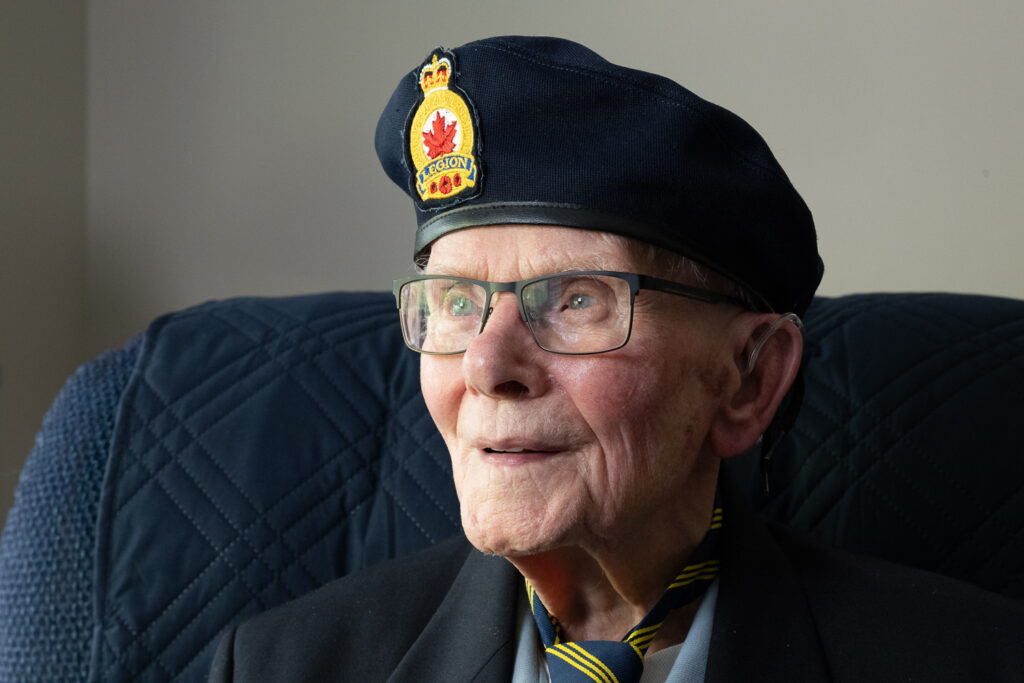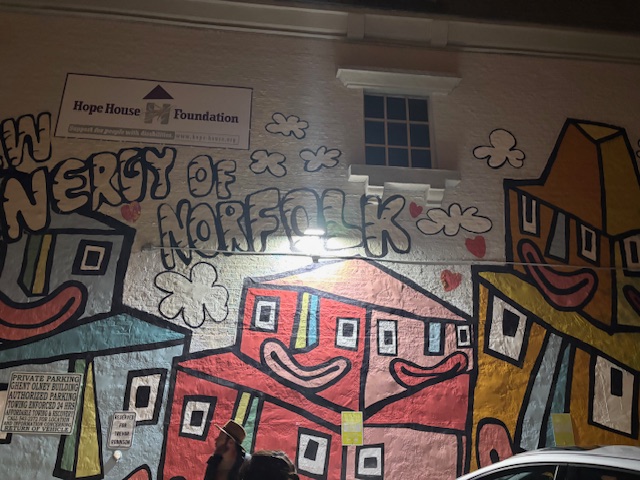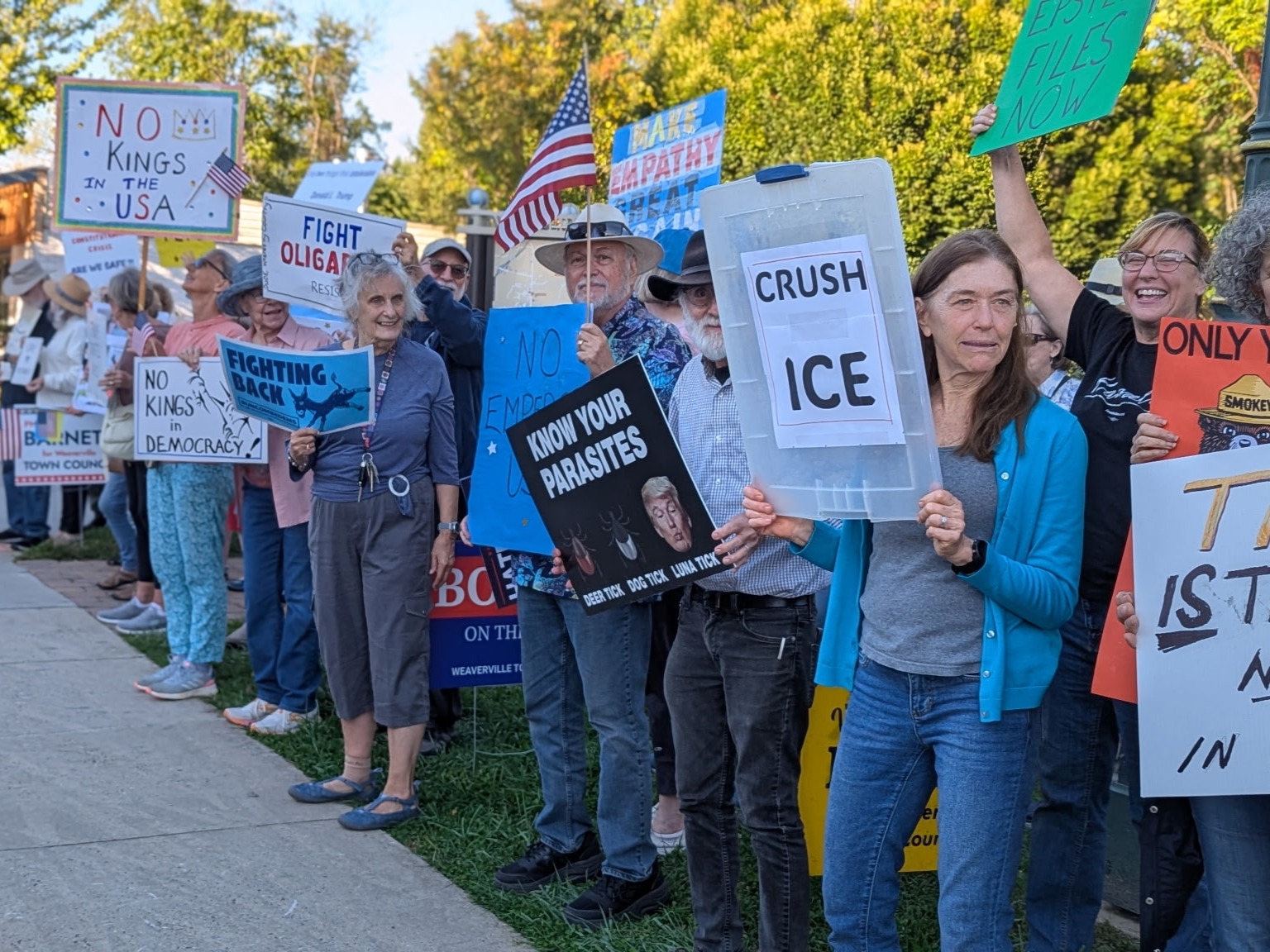(FORT ERIE, Canada) — Statistically speaking, the odds of reaching the age of 110 are almost nonexistent. Of the world’s eight billion people, just 222 have earned the title supercentenarian, according to the Gerontology Research Group. It’s an exclusive club that includes Burdett Sisler, a 110-year-old resident of Fort Erie, Ontario.
Sisler has lived through two world wars, two pandemics, two solar eclipses, and more than a century of change. Born on April 14, 1915, in Akron, Ohio, and now residing in Fort Erie, Ontario, he is believed to be Canada’s oldest living man.
Recently, Sisler sat down for an interview at his home to reflect on his life, military service, and thoughts on the future.
The Click: You were married on September 9, 1939, and the next day Canada declared war on Germany. Do you remember where you were when the war broke out?
Sisler: I remember I woke up the next morning, September the 10th, and we were at war. We made a joke that we started our own battle as well. I was still an American citizen, so I wasn’t too worried about having to go.
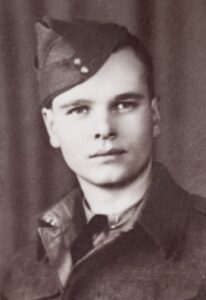
A wartime portrait of Burdett Sisler in uniform, circa 1943. Then in his 20s, he served in the Canadian Army during World War II. [Credit: Burdett Sisler]
I could feel it like a wave coming closer and closer to me. The United States was talking about getting into it, but they stayed out until the last minute. They did the same thing with the First World War. But in 1941, when the Japanese went to Pearl Harbor, I didn’t know whether I would be called back to the States or what. I didn’t want to go back there, so I joined the Canadian Army.
What job were you assigned to do in the Canadian Army?
I was a telecommunication mechanic in the radar section. We repaired a special gadget that the British had. They had them spread along the [English] Channel, spaced apart so many miles. It had its own position finder that swept a 180-degree circle and picked up anything moving in the sky. It was fascinating work. We had to fix the predictor and keep it in working condition, or repair the machines that were feeding the guns.
Your wife was concerned and asked you to give her something before you left for the Army. Can you tell me about that?
What she wanted was something to remember me by, but I wasn’t planning on anything. I figured if I didn’t come back, she’d get remarried and carry on. I don’t know who suggested it, maybe I did in the shock of the moment. I said I could leave you with a baby. She took me up on it. That was in 1942.
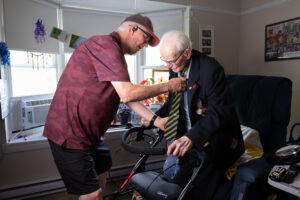
Burdett Sisler, 110, adjusts his tie with the help of his son, Norman, inside his Fort Erie, Ontario, home. [Credit: Benjamin Mack-Jackson]
Just keep your eyes on your back. You don’t know who’s coming up behind you. You can’t trust anybody. Just because you don’t like something else, you shoot somebody. What a crazy world. It doesn’t prove anything. It doesn’t serve anything. All it does is help you to get to your grave sooner.
